Fleurs du Mal Magazine


Or see the index
De schrijvers Alex Boogers, Margot Vanderstraeten en Tommy Wieringa zijn genomineerd voor de E. du Perronprijs 2017. De jury van de E. du Perronprijs heeft de volgende drie boeken genomineerd, waarbij het schrijverschap van Du Perron als leidraad en inspiratie heeft gegolden. De uitreiking vindt plaats op woensdagavond 18 april bij bkkc brabants kenniscentrum voor kunst en cultuur in Tilburg. Marja Pruis, schrijver en redacteur van de Groene Amsterdammer, houdt dan de E. du Perronlezing over arrogantie.
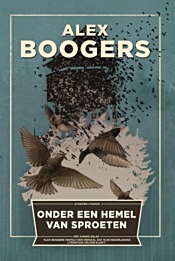 Onder een hemel van sproeten – Alex Boogers
Onder een hemel van sproeten – Alex Boogers
Sproeten of sterren? Geleidelijk wordt de lezer dit verhaal ingetrokken en worden fascinerende personages voorgesteld: de zwarte onaangepaste Harvey, het getormenteerde maar getalenteerde buurmeisje Amy, de oude man Jacob met zijn hond Muis, de stratenmaker Angelo die Harvey van literaire boeken voorziet. Stuk voor stuk eenzame personages die anders zijn dan de mensen om hen heen, en die door Boogers op empathische wijze gepresenteerd worden. Dit is een roman over ongewone vriendschappen, ontwrichting en vergelding.
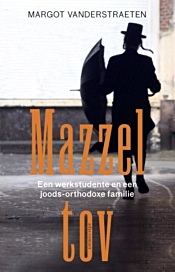 Mazzel tov. Mijn leven als werkstudente bij een orthodox-joodse familie – Margot Vanderstraeten
Mazzel tov. Mijn leven als werkstudente bij een orthodox-joodse familie – Margot Vanderstraeten
Dit boek biedt een fascinerend persoonlijk verslag van het leven als huiswerkbegeleider bij een orthodox-joodse familie in Antwerpen en geeft een unieke longitudinale blik op een besloten gemeenschap. Verschillen worden intelligent en integer besproken, en de lezer is getuige van de wederzijdse verwondering over anders-zijn. De respectvolle subjectieve toon wordt nooit onderbroken. Een empathisch maar ook informatief boek dat toont hoe je van elkaar kunt leren, zonder de scherpe randjes van intermenselijke relaties af te schaven.
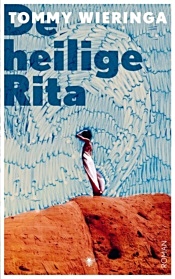 De heilige Rita – Tommy Wieringa
De heilige Rita – Tommy Wieringa
Het bekende, provincialistische, kleine van een dorpsgemeenschap wordt op een natuurlijke manier geconfronteerd met het exotische, onbekende, en vreemde. Het fictieve maar onmiskenbaar Twentse Mariënveen is een dorp waar de horeca is overgenomen door Chinezen. Slavische talen klinken in het dorpscafé. Achterhaalde kruidenierswaren (waaronder pakjes Saroma) liggen te verstoffen en verkleuren in de winkel van Pietje Piep. En moederlijke Rita in Club Pancha biedt betaalde troost. Wieringa’s roman evoceert hoe Nederland veranderde, juist in een krimpregio aan de grens met Duitsland.
E. du Perronprijs
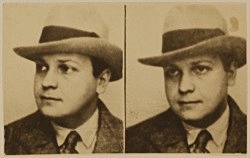 De E. du Perronprijs is een initiatief van de gemeente Tilburg, de School of Humanities and Digital Sciences van Tilburg University en brabants kenniscentrum voor kunst en cultuur (bkkc). De prijs is bedoeld voor personen of instellingen die, net als Du Perron in zijn tijd, grenzen signaleren en doorbreken die wederzijds begrip tussen verschillende bevolkingsgroepen in de weg staan. De prijs bestaat uit een geldbedrag van €2500 euro en een textiel object, ontworpen door studio ‘by aaaa’ (Moyra Besjes en Natasja Lauwers) en vervaardigd bij het TextielMuseum in Tilburg. Vorig jaar won Stefan Hertmans de prijs voor zijn roman De Bekeerlinge. Andere laureaten waren onder meer Ilja Leonard Pfeijffer (2015), Mohammed Benzakour (2013), Koen Peeters (2012), Ramsey Nasr (2011) en Alice Boot & Rob Woortman (2010).
De E. du Perronprijs is een initiatief van de gemeente Tilburg, de School of Humanities and Digital Sciences van Tilburg University en brabants kenniscentrum voor kunst en cultuur (bkkc). De prijs is bedoeld voor personen of instellingen die, net als Du Perron in zijn tijd, grenzen signaleren en doorbreken die wederzijds begrip tussen verschillende bevolkingsgroepen in de weg staan. De prijs bestaat uit een geldbedrag van €2500 euro en een textiel object, ontworpen door studio ‘by aaaa’ (Moyra Besjes en Natasja Lauwers) en vervaardigd bij het TextielMuseum in Tilburg. Vorig jaar won Stefan Hertmans de prijs voor zijn roman De Bekeerlinge. Andere laureaten waren onder meer Ilja Leonard Pfeijffer (2015), Mohammed Benzakour (2013), Koen Peeters (2012), Ramsey Nasr (2011) en Alice Boot & Rob Woortman (2010).
Marja Pruis houdt de achtste E. du Perronlezing.
De E. du Perronprijs 2017 wordt op woensdagavond 18 april 2018 uitgereikt tijdens de avond dat ook de E. du Perronlezing wordt gehouden bij het brabants kenniscentrum voor kunst en cultuur (bkkc) aan de Spoorlaan 21 i-k. Voor tijden en programma zie www.bkkc.nl/eduperron. Meer informatie over de prijs vindt u op: www.tilburguniversity.edu/duperronprijs.
Voor het bijwonen van de uitreiking kunnen belangstellenden en genodigden zich aanmelden via www.bkkc.nl/eduperron.
fleursdumal.nl magazine
More in: - Book Lovers, Archive A-B, Archive C-D, Archive U-V, Archive W-X, Awards & Prizes, Eddy du Perron, Literary Events
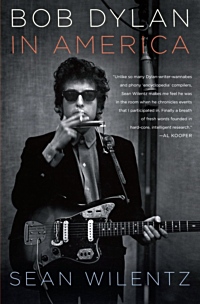 Counterculture, die term muntte socioloog Theodore Roszak voor de maatschappelijke revolte in de zestiger jaren. De hoofdstad van deze tegencultuur was New York. Eerst als broedplaats voor nieuwe visies op de kunst, het leven en de wereld: de poëzie van de Beatgeneration; de muziek van Bob Dylan; seks, drugs en rock-’n-roll. Maar later ook als strijdperk voor de Burgerrechtenbeweging, het verzet tegen de oorlog in Vietnam en tegen een materialistische, autoritaire samenleving.
Counterculture, die term muntte socioloog Theodore Roszak voor de maatschappelijke revolte in de zestiger jaren. De hoofdstad van deze tegencultuur was New York. Eerst als broedplaats voor nieuwe visies op de kunst, het leven en de wereld: de poëzie van de Beatgeneration; de muziek van Bob Dylan; seks, drugs en rock-’n-roll. Maar later ook als strijdperk voor de Burgerrechtenbeweging, het verzet tegen de oorlog in Vietnam en tegen een materialistische, autoritaire samenleving.
Zangeres en schrijfster Patti Smith, haar gitarist en rock-’n-roll-historicus Lenny Kaye, en Dylan-biograaf Sean Wilentz – wiens vader de boekhandel 8th Street Books bestierde, waar de Beatgeneration van Allen Ginsberg opbloeide – beleefden, vormden en beschreven deze bijzondere jaren.
Een middag lang vertellen zij, aan de hand van beelden en muziek, het verhaal over wat het was en wat het voor ons nu nog kan betekenen: An Education in Counterculture.
Patti Smith
Verenigde Staten, 1946, zangeres, dichteres en ‘Godmother of Punk’
Patti Smith is zangeres en dichteres. Als ‘Godmother of Punk’ protesteerde zij met krachtige, controversiële muziek tegen de gevestigde orde en wezenloze fabrieksarbeid in de vercommercialiseerde wereld. Ze groeide op met de muziek van Bob Dylan, leefde samen met fotograaf Robert Mapplethorpe en werd een bekend gezicht in de turbulente New Yorkse kunstscene.
In 1974 begon Smith op te treden met gitarist Lenny Kaye, met wie ze nog steeds de kern van de band The Patti Smith Group vormt. Haar debuutalbum Horses (1975) wordt gezien als een van de invloedrijkste albums in de geschiedenis van de rockmuziek. Samen met Bruce Springsteen schreef ze Because the Night, haar grootste hit. Naast vele albums schreef Smith ook dichtbundels en boeken, waaronder Just Kids (2010), haar bekroonde autobiografie over het leven in New York in de jaren zeventig en haar relatie met Mapplethorpe.
Lenny Kaye
Verenigde Staten, 1946, gitarist, componist en schrijver
Lenny Kaye is gitarist, componist en schrijver. Als jonge zanger en gitarist toerde en speelde hij met verschillende bands en werkte hij als journalist voor Amerikaanse muziekbladen. Begin jaren zeventig ontmoette hij Patti Smith in de platenzaak in New York waar hij werkte. Kaye maakte elf albums met The Patti Smith Group en speelde ook in de Jim Caroll Band en Lenny Kaye Connection. Daarnaast werkte hij samen met vele andere prominente musici en artiesten, waaronder Allen Ginsberg, R.E.M. en Suzanne Vega. Momenteel werkt hij aan zijn boek Lightning Striking, over de geschiedenis van de rock-’n-roll. In 2011 werd Kaye geridderd tot Chevalier de l’Ordre des Arts et des Lettres.
Sean Wilentz
Verenigde Staten, 1951, historicus en biograaf van Bob Dylan
Sean Wilentz is schrijver en hoogleraar Amerikaanse geschiedenis aan Princeton. Zijn vader Eli Wilentz was eigenaar van 8th Street Bookshop, het literaire middelpunt van New York in de jaren vijftig en zestig. Zo groeide Wilentz op tussen grootheden van de Beatgeneration zoals Jack Kerouac, Allen Ginsberg en William S. Burroughs, die de boekhandel geregeld bezochten. Wilentz studeerde aan Columbia en Oxford, en promoveerde aan Yale. Zijn bekendste werken zijn het monumentale The Rise of American Democracy (2005); The Age of Reagan (2008); en Bob Dylan in America (2010), over Dylans plaats in de Amerikaanse cultuurgeschiedenis. Wilentz is huishistoricus van de officiële site van Bob Dylan, en schrijft geregeld voor onder meer The New Republic, The New York Times Book Review en Dissent.
An Education in Counterculture
Nexus-symposium
26 mei 2018
13.30 – 17.30
DeLaMar Theater Amsterdam
# meer informatie website Nexus-symposium
fleursdumal.nl magazine
More in: #Editors Choice Archiv, Archive K-L, Archive S-T, Archive S-T, Archive W-X, Literary Events, Nexus Instituut, Patti Smith, Smith, Patti
Menno Wigman (Beverwijk, 10 oktober 1966 – Amsterdam, 1 februari 2018) was een Nederlands dichter, bloemlezer en vertaler. Hij stierf vandaag op 51-jarige leeftijd in het VU medisch centrum in Amsterdam.
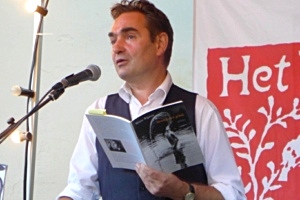 Van 1984 tot aan zijn dood publiceerde Wigman 14 dichtbundels. Voor zijn werk ontving Menno Wigman in 2002 de Jan Campert-prijs en in 2015 de A. Roland Holst-Penning. In de jaren 2012-2013 was hij stadsdichter van Amsterdam.
Van 1984 tot aan zijn dood publiceerde Wigman 14 dichtbundels. Voor zijn werk ontving Menno Wigman in 2002 de Jan Campert-prijs en in 2015 de A. Roland Holst-Penning. In de jaren 2012-2013 was hij stadsdichter van Amsterdam.
Vandaag schreef zijn uitgever Prometheus in een verklaring: “Wij treuren om het verlies van een van de grootste dichters van ons taalgebied. Menno Wigman was een van die weinige dichters die zowel zijn vakgenoten als het grote, in literatuur geïnteresseerde publiek voor zijn dichtkunst wist te winnen. Zijn dood is een slag voor de Nederlandse poëzie.”
Nu lig ik op een zaal, mijn hart, die logge spier,
verlaat me, laf als een gedicht laat het me staan
en voor het eind van deze avond zakt de dood
mijn longen in.
De zon was mij nooit opgevallen als hij niet
steeds onderging. Geen lucht, geen flonkering, geen hoop.
Waarom, mijn lichaam, heb ik nooit in je geloofd?
(uit: Afscheid van mijn lichaam)
# Link naar Menno Wigman en zijn werk op website K. B.
Foto: Menno Wigman op het poëziefestival Het Tuinfeest in Deventer, 6 augustus 2016 (Oskardebot, Wikipedia Commons)
in memoriam
fleursdumal.nl magazine
More in: Archive W-X, Archive W-X, Art & Literature News, EDITOR'S CHOICE, In Memoriam, Wigman, Menno
Wüsste man nichts von Jan Wagners lyrischem Werk, man würde überhaupt nur noch Essays von ihm lesen wollen.
 Ob er über Bibliotheken, Buchhandlungen, Lyrik oder Kunst schreibt, ob er literarische Postkarten aus Rom oder Los Angeles sendet oder die Epiphanie eines Rosmarins im schwäbischen Garten feiert – man glaubt diesem charmanten Geschichtenerzähler alles.
Ob er über Bibliotheken, Buchhandlungen, Lyrik oder Kunst schreibt, ob er literarische Postkarten aus Rom oder Los Angeles sendet oder die Epiphanie eines Rosmarins im schwäbischen Garten feiert – man glaubt diesem charmanten Geschichtenerzähler alles.
Es bleibt kaum Zeit, die rhetorische Fingerfertigkeit zu bewundern, mit der da zwischen souveräner Gelehrsamkeit unerwartet die nächste Anekdote aus dem Ärmel gezogen wird, und man kann nicht anders als staunen über die Trouvaillen, die Jan Wagner von seinen Entdeckungsreisen quer durch Epochen und Kontinente mitbringt.
Jan Wagner, 1971 in Hamburg geboren, lebt in Berlin. 2001 erschien sein erster Gedichtband Probebohrung im Himmel. Es folgten Guerickes Sperling (2004), Achtzehn Pasteten (2007), Australien (2010), Die Eulenhasser in den Hallenhäusern (2012) und zuletzt der Sammelband Selbstporträt mit Bienenschwarm (2016). Zudem ist er Mitherausgeber der Minnesang-Anthologie Unmögliche Liebe (Die Kunst des Minnesangs in neuen Übertragungen, 2017). Für seine Lyrik wurde Jan Wagner vielfach ausgezeichnet. Mit seinem Gedichtband Regentonnenvariationen (2014) gewann er 2015 den Preis der Leipziger Buchmesse, außerdem wurde er 2017 mit dem Georg-Büchner-Preis ausgezeichnet.
Jan Wagner:
Der verschlossene Raum.
Beiläufige Prosa
EAN: 9783446254756
ISBN: 3446254757
Libri: 2557154
Hanser Berlin
2017 – 268 Seiten
gebunden € 22,00
new books
fleursdumal.nl magazine
More in: - Book News, - Book Stories, Archive W-X, Archive W-X, Art & Literature News
“The experiences could be understood only as being of such extremity that they stood beyond written words; it was not a failure of language, but a view that, for the individual, language, particularly written words, and the enormity of the experience were not matched.”
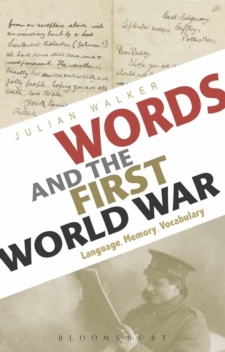 First World War expert Julian Walker looks at how the conflict shaped English and its relationship with other languages. He considers language in relation to mediation and authenticity, as well as the limitations and potential of different kinds of verbal communication.
First World War expert Julian Walker looks at how the conflict shaped English and its relationship with other languages. He considers language in relation to mediation and authenticity, as well as the limitations and potential of different kinds of verbal communication.
Walker also examines:
– How language changed, and why changed language was used in communications
– Language used at the Front and how the ‘language of the war’ was commercially exploited on the Home Front
– The relationship between language, soldiers and class
– The idea of the ‘indescribability’ of the war and the linguistic codes used to convey the experience
‘Languages of the front’ became linguistic souvenirs of the war, abandoned by soldiers but taken up by academics, memoir writers and commentators, leaving an indelible mark on the words we use even today.
Julian Walker is a writer, researcher, artist and educator. He is an Honorary Research Associate at University College, London, UK. He is the co-author of Languages and the First World War: Communicating in a Transnational War (2016), the author of The Roar of the Crowd (2016) and Trench Talk (2012) among many others. His website is www.julianwalker.net
Writes: Lexicology, First World War, Sociolinguistics and Linguistic Anthropology, World History, Heritage
Author of : Words and the First World War, Team Talk, Discovering Words in the Kitchen, Discovering Words
“This is a substantial book, dense but always accessible, covering both time and space. Gratifyingly, it sidesteps an all too common error that entraps books on words, of becoming no more than a padded dictionary.” – The Daily Telegraph
Words and the First World War
Language, Memory, Vocabulary
By: Julian Walker
Published: 28-12-2017
Format: Paperback
Edition: 1st
Extent: 416
ISBN: 9781350001923
Imprint: Bloomsbury Academic
Illustrations: 50 bw images
Dimensions: 216 x 138 mm
Prize: £14.99
fleursdumal.nl magazine
More in: *War Poetry Archive, - Book News, - Book Stories, Archive W-X, Art & Literature News, Histoire de France, Historia Belgica, History of Britain
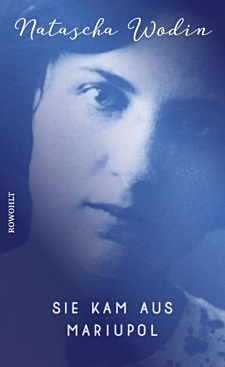 “Wenn du gesehen hättest, was ich gesehen habe” – Natascha Wodins Mutter sagte diesen Satz immer wieder und nahm doch, was sie meinte, mit ins Grab. Da war die Tochter zehn und wusste nicht viel mehr, als dass sie zu einer Art Menschenunrat gehörte, zu irgendeinem Kehricht, der vom Krieg übriggeblieben war. Wieso lebten sie in einem der Lager für “Displaced Persons”, woher kam die Mutter, und was hatte sie erlebt? Erst Jahrzehnte später öffnet sich die Blackbox ihrer Herkunft, erst ein bisschen, dann immer mehr.
“Wenn du gesehen hättest, was ich gesehen habe” – Natascha Wodins Mutter sagte diesen Satz immer wieder und nahm doch, was sie meinte, mit ins Grab. Da war die Tochter zehn und wusste nicht viel mehr, als dass sie zu einer Art Menschenunrat gehörte, zu irgendeinem Kehricht, der vom Krieg übriggeblieben war. Wieso lebten sie in einem der Lager für “Displaced Persons”, woher kam die Mutter, und was hatte sie erlebt? Erst Jahrzehnte später öffnet sich die Blackbox ihrer Herkunft, erst ein bisschen, dann immer mehr.
“Sie kam aus Mariupol” ist das außergewöhnliche Buch einer Spurensuche. Natascha Wodin geht dem Leben ihrer ukrainischen Mutter nach, die aus der Hafenstadt Mariupol stammte und mit ihrem Mann 1943 als “Ostarbeiterin” nach Deutschland verschleppt wurde. Sie erzählt beklemmend, ja bestürzend intensiv vom Anhängsel des Holocaust, einer Fußnote der Geschichte: der Zwangsarbeit im Dritten Reich. Ihre Mutter, die als junges Mädchen den Untergang ihrer Adelsfamilie im stalinistischen Terror miterlebte, bevor sie mit ungewissem Ziel ein deutsches Schiff bestieg, tritt wie durch ein spätes Wunder aus der Anonymität heraus, bekommt ein Gesicht, das unvergesslich ist. “Meine arme, kleine, verrückt gewordene Mutter”, kann Natascha Wodin nun zärtlich sagen, und auch für uns Leser wird begreifbar, was verlorenging. Dass es dieses bewegende, dunkel-leuchtende Zeugnis eines Schicksals gibt, das für Millionen anderer steht, ist ein literarisches Ereignis.
“Das erinnert nicht von ungefähr an die Verfahrensweise, mit der W. G. Sebald, der große deutsche Gedächtniskünstler, verlorene Lebensläufe der Vergessenheit entriss.” (Sigrid Löffler in ihrer Laudatio auf Natascha Wodin bei der Verleihung des Alfred-Döblin-Preises 2015)
Natascha Wodin, 1945 als Kind sowjetischer Zwangsarbeiter in Fürth/Bayern geboren, wuchs erst in deutschen DP-Lagern, dann, nach dem frühen Tod der Mutter, in einem katholischen Mädchenheim auf. Nach dem Abschluss einer Sprachenschule übersetzte sie aus dem Russischen und lebte zeitweise in Moskau. Auf ihr Romandebüt “Die gläserne Stadt”, das 1983 erschien, folgten etliche Veröffentlichungen, darunter die Romane “Einmal lebt ich”, “Die Ehe” und “Nachtgeschwister”. Ihr Werk wurde unter anderem mit dem Hermann-Hesse-Preis, dem Brüder-Grimm-Preis und dem Adelbert-von-Chamisso-Preis ausgezeichnet, für “Sie kam aus Mariupol” wurde ihr der Alfred-Döblin-Preis, der Preis der Leipziger Buchmesse und der August-Graf-von-Platen-Preis verliehen. Natascha Wodin lebt in Berlin und Mecklenburg.
Preis der Leipziger Buchmesse
Preisträger 2017 in der Kategorie Belletristik
Natascha Wodin: “Sie kam aus Mariupol”
Rowohlt Verlag)
Die Begründung der Jury: In „Sie kam aus Mariupol“ forscht Natascha Wodin nach den Lebensspuren ihrer ukrainischen Mutter Jewgenia – und stößt auf das Schicksal ihrer Tante Lidia. Während die Mutter 1943 mit ihrem russischen Mann als Zwangsarbeiterin in ein Leipziger Montagewerk für Kriegsflugzeuge verschleppt wurde, kam die Tante zehn Jahre zuvor in ein sowjetisches Straflager. Das ist die ungeheuerliche Parallelität, die die Familiengeschichte zerteilt. „Sie kam aus Mariupol“ ist nicht aus einem Guss, weil es angesichts der Brüche des 20. Jahrhunderts gar nicht aus einem Guss sein kann. In vier hart gefügten Teilen treibt es aus unterschiedlichen Richtungen seine Stollen durch ein Massiv kollektiver und individueller Gewalt. Dieses Buch trägt auch ausdrücklich nicht die Bezeichnung Roman. Doch an der Grenze von Fiktion und Nichtfiktion, wo es angesiedelt ist, betreibt es autobiografisches Schreiben mit einem hohen Maß an Selbstreflexion und romanhaftes Schreiben auf der Grundlage von Lidias Tagebüchern. In diesem genreüberschreitenden Sinn ist es unerhört zeitgenössisch. Erinnerungsarbeit als Widerstand gegen das eigene Zerbrechen: Die Rettung, die sich Natascha Wodin davon erhofft, bleibt aus. Aber die Tapferkeit, mit der sie den Dämonen ins Gesicht sieht, die sie bannen muss, hat auch etwas ungemein Ermutigendes. Davon kann sich jeder Leser von „Sie kam aus Mariupol“ überzeugen.
Natascha Wodin
‘Sie kam aus Mariupol’
EAN: 9783498073893
ISBN: 3498073893
Libri: 2561776
Rowohlt Verlag GmbH
2017, 363 Seiten
gebunden, €19,95
fleursdumal.nl magazine
More in: - Book News, - Bookstores, Archive W-X, Art & Literature News, Awards & Prizes, PRESS & PUBLISHING, The Art of Reading
Ever since Emma read Pride and Prejudice, she’s been in love with Mr. Darcy and has regarded Jane Austen as the expert on all things romantic.
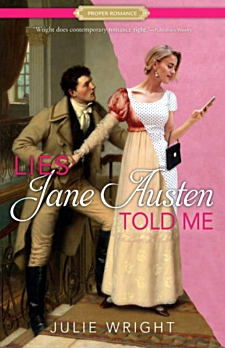 So naturally when Emma falls for Blake Hampton and he invites her home to meet his parents, she is positive an engagement is in her future. After all, Blake is a single man in possession of a good fortune, and thus must be in want of a wife.
So naturally when Emma falls for Blake Hampton and he invites her home to meet his parents, she is positive an engagement is in her future. After all, Blake is a single man in possession of a good fortune, and thus must be in want of a wife.
But when it turns out that what Blake actually wants is more of a hook-up than a honeymoon, Emma is hurt, betrayed, and furious. She throws herself deeper into her work as CMO of Kinetics, the fastest growing gym franchise in the nation. She loves her work, and she’s good at it, which is why she bristles when her boss brings in a consultant to help her spearhead the new facilities on the East Coast. Her frustration turns to shock when that consultant turns out to be Blake’s younger brother, Lucas. Emma is determined not to fall for Lucas, but as she gets to know him, she realizes that Lucas is nothing like his brother. He is kind and attentive and spends his time and money caring for the less fortunate.
What she can’t understand is why Lucas continues to try to push her back into Blake’s arms when he so clearly has fallen as hard for her as she has fallen for him. It isn’t until Lucas reveals to Emma that he was adopted into the Hampton family that she begins to understand his loyalty to Blake as well as his devotion to the child April-she is Lucas’s biological niece.
Emma opens up to Lucas about the feelings of abandonment she has harbored ever since she was a child and her mother left the family. As she helps Lucas deal with his past demons, she is able to exorcise some of her own.
Realizing that her love life is as complicated as anything Jane Austen could have dreamed up, Emma must find a way to let Blake know that it’s time for him to let her go and to let Lucas know it’s time for him to love her back.
Julie Wright wrote her first book when she was fifteen, and has since written twenty-three novels. She has a husband, three kids, a dog, and a varying amount of fish, frogs, and salamanders (depending on attrition). She loves writing, reading, traveling, speaking at schools, hiking, playing with her kids, and watching her husband make dinner.
Julie Wright
Lies Jane Austen Told Me
Published: 2017
Pages: 320
ISBN: 9781629723426
Publisher: Shadow Mountain
fleursdumal.nl magazine
More in: - Book News, - Bookstores, Archive A-B, Archive W-X, Art & Literature News, Austen, Jane, Austen, Jane, Jane Austen
“Führe dich selbst in eine gute Zukunft. Wie ein guter Häuptling seinen Stamm.” (Frank Behrendt)
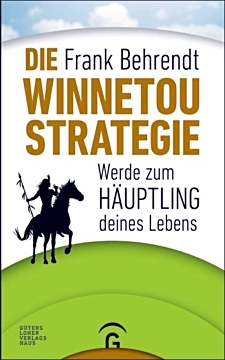 Frank Behrendt ist seit seiner Jugend leidenschaftlicher Winnetou-Fan – der »Guru der Gelassenheit« hat sich in vielen Lebenslagen von dem stolzen Apachen-Häuptling und anderen Figuren des Schriftstellers Karl May inspirieren lassen.
Frank Behrendt ist seit seiner Jugend leidenschaftlicher Winnetou-Fan – der »Guru der Gelassenheit« hat sich in vielen Lebenslagen von dem stolzen Apachen-Häuptling und anderen Figuren des Schriftstellers Karl May inspirieren lassen.
Auch von anderen Persönlichkeiten im echten Leben hat Frank Behrendt viel gelernt. Ihre Haltung, Klugheit und Weisheit hat er übernommen und für seinen eigenen Weg erfolgreich adaptiert. Selbstbestimmt und selbst-entschieden zu leben, tatsächlich Häuptling des eigenen Lebens zu sein, war immer sein Ziel.
In unterhaltsamen Geschichten erzählt Frank Behrendt an konkreten Beispielen, wie ihn die Helden seiner Kindheit nachhaltig beeinflusst haben. Eine Inspiration für jeden und ein flammender Appell an alle, Ausschau zu halten nach den Helden am Wegesrand – den fiktionalen und den realen.
Frank Behrendt, geb. 1963, ist seit gut 20 Jahren ausgewiesener PR- und Kommunikationsfachmann mit intensiven Kontakten zu Medien, Wirtschaft und Politik. Nach Stationen bei BILD, Dornier, Henkel, RTL Television und Universal Music war der Absolvent der Deutschen Journalistenschule in München Deutschland-Chef bei KetchumPleon, bevor er 2011 als Vorstand zur fischerAppelt AG wechselte. Seit Februar 2017 ist er in der Serviceplan-Gruppe tätig. Im März 2017 wurde er von der Deutschen Public Relations Gesellschaft (DPRG) als “PR-Kopf des Jahres” ausgezeichnet. Frank Behrendt lebt mit seiner Frau und seinen drei Kindern in Köln.
Frank Behrendt
Die Winnetou-Strategie Werde zum Häuptling deines Lebens
Seitenzahl: 221
Oktober 2017
Deutsch
Abmessung: 218mm x 139mm x 25mm
Gebundenes Buch mit Schutzumschlag
ISBN-13: 9783579086811
ISBN-10: 3579086812
Verlag: Gütersloher Verlagshaus
fleursdumal.nl magazine
More in: - Book News, - Bookstores, Archive A-B, Archive M-N, Archive W-X, Art & Literature News, Cowboys and Indians, Karl May
In this second novel of Alison Weir’s epic Six Tudor Queens series, the acclaimed author and historian weaves exciting new research into the story of Anne Boleyn, Henry VIII’s most infamous wife, a woman ahead of her time whose very life—and death—forever changed a nation.
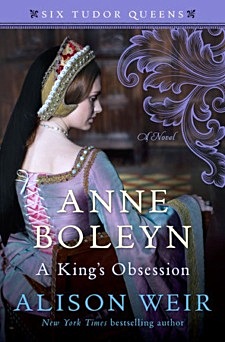 Born into a noble English family, Anne is barely a teenager when she is sent from her family’s Hever Castle to serve at the royal court of the Netherlands. This strategic move on the part of her opportunistic father also becomes a chance for the girl to grow and discover herself. There, and later in France, Anne thrives, preferring to absorb the works of progressive writers rather than participate in courtly flirtations. She also begins to understand the inequalities and indignities suffered by her gender.
Born into a noble English family, Anne is barely a teenager when she is sent from her family’s Hever Castle to serve at the royal court of the Netherlands. This strategic move on the part of her opportunistic father also becomes a chance for the girl to grow and discover herself. There, and later in France, Anne thrives, preferring to absorb the works of progressive writers rather than participate in courtly flirtations. She also begins to understand the inequalities and indignities suffered by her gender.
Anne isn’t completely inured to the longings of the heart, but her powerful family has ambitious plans for her future that override any wishes of her own. When the King of England himself, Henry VIII, asks Anne to be his mistress, she spurns his advances—reminding him that he is a married man who has already conducted an affair with her sister, Mary. Anne’s rejection only intensifies Henry’s pursuit, but in the absence of a male heir—and given an aging Queen Katherine—the opportunity to elevate and protect the Boleyn family, and to exact vengeance on her envious detractors, is too tempting for Anne to resist, even as it proves to be her undoing.
While history tells of how Anne Boleyn died, this compelling new novel reveals how fully she lived.
“This is a stunning, engaging, comprehensive and convincing novel. . . . [Alison] Weir’s characterisation is superb, and this complex novel will be, without doubt, one of the most admired works of historical fiction of 2017.” – Historical Novels Review
Alison Weir is the New York Times bestselling author of numerous historical biographies, including The Lost Tudor Princess, Elizabeth of York, Mary Boleyn, The Lady in the Tower, Mistress of the Monarchy, Henry VIII, Eleanor of Aquitaine, The Life of Elizabeth I, and The Six Wives of Henry VIII, and the novels Anne Boleyn, A King’s Obsession; Katherine of Aragon, The True Queen; The Marriage Game; A Dangerous Inheritance; Captive Queen; The Lady Elizabeth; and Innocent Traitor. She lives in Surrey, England, with her husband.
Anne Boleyn, A King’s Obsession
A Novel
By Alison Weir
Part of Six Tudor Queens
Historical Fiction – Literary Fiction
Paperback
Publ. Penquin Random House
May 01, 2018
576 Pages
new books
fleursdumal.nl magazine
More in: - Book News, - Book Stories, Anne Boleyn, Archive W-X, Art & Literature News
Hendrik Nicolaas Werkman (1882-1945) wordt in 1919 lid van de ‘Groninger Kunstkring De Ploeg’.
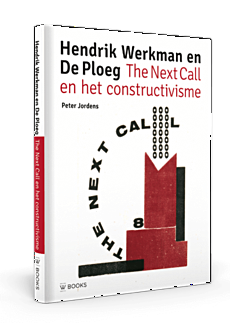 Men waardeert hem vooral als drukker. In 1922, wanneer hij zakelijk een stap terug moet doen, maakt Werkman kennis met het gebruik van typografisch zetmateriaal als vorm van drukkunst. Hij begint de mogelijkheden ervan te onderzoeken.
Men waardeert hem vooral als drukker. In 1922, wanneer hij zakelijk een stap terug moet doen, maakt Werkman kennis met het gebruik van typografisch zetmateriaal als vorm van drukkunst. Hij begint de mogelijkheden ervan te onderzoeken.
De eerste proeve van zijn kunnen is de uitgave van The Next Call, een serie van negen achtbladige cahiers bestaande uit teksten en abstracte composities die hij tussen 1923 en 1926 aan vrienden en andere mogelijk geïnteresseerden toestuurt. Talrijk zijn de aanwijzingen dat Werkman zich daarbij heeft laten inspireren door het dadaïstische en constructivistische idioom van de internationale avant-garde. Een modernistisch tijdschrift als een van de vele andere is The Next Call niet. Teksten en druksels laten zien dat het gaat over Werkman zelf, over wat hem in deze cruciale periode van zijn leven wezenlijk beroert
Peter Jordens:
Hendrik Werkman en De Ploeg.
The Next Call en het constructivisme
Dit boek verschijnt in oktober 2017
€ 22,50
ISBN 9789462582286
Formaat: 20 x 26,5 cm
Aantal pagina’s 176
In samenwerking met Museum Belvédère
Circa 150 afbeeldingen in kleur
Jaar 2017
Uitvoering: Gebonden
Uitg.: wbooks
new books
fleursdumal.nl magazine
More in: *Concrete + Visual Poetry U-Z, - Book Lovers, - Book News, Archive W-X, Archive W-X, Art & Literature News, Constructivism, Constuctivisme, Dada, DADA, Dadaïsme, De Ploeg, Hendrik Nicolaas Werkman, PRESS & PUBLISHING, REPRESSION OF WRITERS, JOURNALISTS & ARTISTS, Werkman, Hendrik Nicolaas
Nederland vormde Jan Wolkers, en Jan Wolkers vormde Nederland.
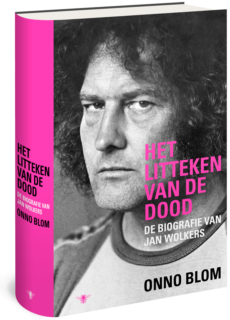 Zijn kunstenaarschap ontstond uit woede tegen de God van zijn gereformeerde vader in Oegstgeest, bloeide op in Amsterdam, en vond harmonie op Texel.
Zijn kunstenaarschap ontstond uit woede tegen de God van zijn gereformeerde vader in Oegstgeest, bloeide op in Amsterdam, en vond harmonie op Texel.
Zijn romans werden verguisd, bejubeld en bekroond. Wereldwijd werden honderdduizenden exemplaren verkocht van Kort Amerikaans, Een roos van vlees en Turks fruit.
Wolkers werd opgeleid als beeldhouwer. Hij maakte vele beelden in brons en glas, en liet een schitterend oeuvre van kleurrijke schilderijen na. Zoals hij beeldhouwde met woorden, zo schreef hij met verf.
Meer dan tien jaar lang werkte Onno Blom aan Wolkers’ biografie. Op basis van een schat aan materiaal schetst hij een rebels, obsessief en zinnelijk leven in de greep van liefde en dood. Wolkers had onstuimige relaties met vrouwen en meisjes. De dood van zijn oudste broer en die van zijn tweejarige dochtertje bleven hem tot zijn laatste dag als demonen achtervolgen.
Onno Blom (1969) studeerde in 1994 cum laude af in de Nederlandse taal- en letterkunde en Culturele Studies. Na een aantal jaren te hebben gewerkt als literair redacteur bij dagblad Trouw en korte tijd als hoofdredacteur van Uitgeverij Prometheus Bert Bakker en adjunct-directeur van De Bezige Bij, is hij werkzaam als freelance journalist en literair criticus. Hij maakte voor Teleac een aantal radioprogramma’s en treedt op als interviewer en presentator bij literaire bijeenkomsten in het land. Blom is de officiële biograaf van Jan Wolkers.
‘Arme Onno. Zweet, bloed en tranen zullen langs zijn rug lopen,’ zei Wolkers vlak voor zijn dood in NRC Handelsblad.
Verwacht – 19 oktober 2017 – handelseditie
Het litteken van de dood
Onno Blom
Aantal pagina’s 1168
Uitvoering: Gebonden
ISBN 9789023454588
Uitgever De Bezige Bij
Druk vanaf 1e
Taal Nederlands
Bladzijden 1168 pp.
Bindwijze Hardcover
Genre Literaire non-fictie
€39,99
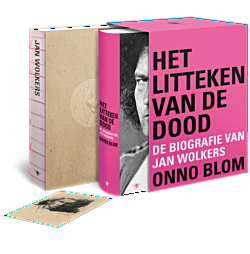 Naast de toegankelijke ‘volkseditie’ verschijnt een luxe editie in cassette, met daarin de biografie in een gebonden uitgave, een gebonden beeldboek met leven en werk van Jan Wolkers aan de hand van foto’s, portretten, kunstwerken en egodocumenten, en een facsimiledruk van een zelfportret van Jan Wolkers uit 1945.
Naast de toegankelijke ‘volkseditie’ verschijnt een luxe editie in cassette, met daarin de biografie in een gebonden uitgave, een gebonden beeldboek met leven en werk van Jan Wolkers aan de hand van foto’s, portretten, kunstwerken en egodocumenten, en een facsimiledruk van een zelfportret van Jan Wolkers uit 1945.
Deze luxe editie verschijnt in een eenmalige oplage van 1500 exemplaren, wordt genummerd en voorzien van de handtekeningstempel van Wolkers.
Verwacht – 19 oktober 2017 – luxe uitgave
Het litteken van de dood
Onno Blom
ISBN 9789023456568
Uitgever De Bezige Bij
Druk vanaf 1e
Taal Nederlands
Bindwijze Hardcover
Genre Biografieën
€129,99
new books
fleursdumal.nl magazine
More in: - Book Lovers, - Book News, Archive W-X, Art & Literature News, BIOGRAPHY, Jan Wolkers
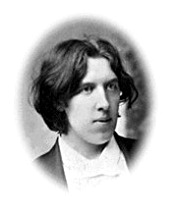 Oscar Wilde
Oscar Wilde
(1854 – 1900)
The Teacher of Wisdom
From his childhood he had been as one filled with the perfect knowledge of God, and even while he was yet but a lad many of the saints, as well as certain holy women who dwelt in the free city of his birth, had been stirred to much wonder by the grave wisdom of his answers.
And when his parents had given him the robe and the ring of manhood he kissed them, and left them and went out into the world, that he might speak to the world about God. For there were at that time many in the world who either knew not God at all, or had but an incomplete knowledge of Him, or worshipped the false gods who dwell in groves and have no care of their worshippers.
And he set his face to the sun and journeyed, walking without sandals, as he had seen the saints walk, and carrying at his girdle a leathern wallet and a little water-bottle of burnt clay.
And as he walked along the highway he was full of the joy that comes from the perfect knowledge of God, and he sang praises unto God without ceasing; and after a time he reached a strange land in which there were many cities.
And he passed through eleven cities. And some of these cities were in valleys, and others were by the banks of great rivers, and others were set on hills. And in each city he found a disciple who loved him and followed him, and a great multitude also of people followed him from each city, and the knowledge of God spread in the whole land, and many of the rulers were converted, and the priests of the temples in which there were idols found that half of their gain was gone, and when they beat upon their drums at noon none, or but a few, came with peacocks and with offerings of flesh as had been the custom of the land before his coming.
Yet the more the people followed him, and the greater the number of his disciples, the greater became his sorrow. And he knew not why his sorrow was so great. For he spake ever about God, and out of the fulness of that perfect knowledge of God which God had Himself given to him.
And one evening he passed out of the eleventh city, which was a city of Armenia, and his disciples and a great crowd of people followed after him; and he went up on to a mountain and sat down on a rock that was on the mountain, and his disciples stood round him, and the multitude knelt in the valley.
And he bowed his head on his hands and wept, and said to his Soul, ‘Why is it that I am full of sorrow and fear, and that each of my disciples is as an enemy that walks in the noonday?’
And his Soul answered him and said, ‘God filled thee with the perfect knowledge of Himself, and thou hast given this knowledge away to others. The pearl of great price thou hast divided, and the vesture without seam thou hast parted asunder. He who giveth away wisdom robbeth himself. He is as one who giveth his treasure to a robber. Is not God wiser than thou art? Who art thou to give away the secret that God hath told thee? I was rich once, and thou hast made me poor. Once I saw God, and now thou hast hidden Him from me.’
And he wept again, for he knew that his Soul spake truth to him, and that he had given to others the perfect knowledge of God, and that he was as one clinging to the skirts of God, and that his faith was leaving him by reason of the number of those who believed in him.
And he said to himself, ‘I will talk no more about God. He who giveth away wisdom robbeth himself’
And after the space of some hours his disciples came near him and bowed themselves to the ground and said, ‘Master, talk to us about God, for thou hast the perfect knowledge of God, and no man save thee hath this knowledge.’
And he answered them and said, ‘I will talk to you about all other things that are in heaven and on earth, but about God I will not talk to you. Neither now, nor at any time, will I talk to you about God.’
And they were wroth with him and said to him, ‘Thou hast led us into the desert that we might hearken to thee. Wilt thou send us away hungry, and the great multitude that thou hast made to follow thee?’
And he answered them and said, ‘I will not talk to you about God.’
And the multitude murmured against him and said to him ‘Thou hast led us into the desert, and hast given us no food to eat. Talk to us about God and it will suffice us.’
But he answered them not a word. For he knew that if he spake to them about God he would give away his treasure.
And his disciples went away sadly, and the multitude of people returned to their own homes. And many died on the way.
And when he was alone he rose up and set his face to the moon, and journeyed for seven moons, speaking to no man nor making any answer. And when the seventh moon had waned he reached that desert which is the desert of the Great River. And having found a cavern in which a Centaur had once dwelt, he took it for his place of dwelling, and made himself a mat of reeds on which to lie, and became a hermit. And every hour the Hermit praised God that He had suffered him to keep some knowledge of Him and of His wonderful greatness.
Now, one evening, as the Hermit was seated before the cavern in which he had made his place of dwelling, he beheld a young man of evil and beautiful face who passed by in mean apparel and with empty hands. Every evening with empty hands the young man passed by, and every morning he returned with his hands full of purple and pearls. For he was a Robber and robbed the caravans of the merchants.
And the Hermit looked at him and pitied him. But he spake not a word. For he knew that he who speaks a word loses his faith.
And one morning, as the young man returned with his hands full of purple and pearls, he stopped and frowned and stamped his foot upon the sand, and said to the Hermit: ‘Why do you look at me ever in this manner as I pass by? What is it that I see in your eyes? For no man has looked at me before in this manner. And the thing is a thorn and a trouble to me.’
And the Hermit answered him and said, ‘What you see in my eyes is pity. Pity is what looks out at you from my eyes.’
And the young man laughed with scorn, and cried to the Hermit in a bitter voice, and said to him, ‘I have purple and pearls in my hands, and you have but a mat of reeds on which to lie. What pity should you have for me? And for what reason have you this pity?’
‘I have pity for you,’ said the Hermit, ‘because you have no knowledge of God.’
‘Is this knowledge of God a precious thing?’ asked the young man, and he came close to the mouth of the cavern.
‘It is more precious than all the purple and the pearls of the world,’ answered the Hermit.
‘And have you got it?’ said the young Robber, and he came closer still.
‘Once, indeed,’ answered the Hermit, ‘I possessed the perfect knowledge of God. But in my foolishness I parted with it, and divided it amongst others. Yet even now is such knowledge as remains to me more precious than purple or pearls.’
And when the young Robber heard this he threw away the purple and the pearls that he was bearing in his hands, and drawing a sharp sword of curved steel he said to the Hermit, ‘Give me, forthwith, this knowledge of God that you possess, or I will surely slay you. Wherefore should I not slay him who has a treasure greater than my treasure?’
And the Hermit spread out his arms and said, ‘Were it not better for me to go unto the uttermost courts of God and praise Him, than to live in the world and have no knowledge of Him? Slay me if that be your desire. But I will not give away my knowledge of God.’
And the young Robber knelt down and besought him, but the Hermit would not talk to him about God, nor give him his Treasure, and the young Robber rose up and said to the Hermit, ‘Be it as you will. As for myself, I will go to the City of the Seven Sins, that is but three days’ journey from this place, and for my purple they will give me pleasure, and for my pearls they will sell me joy.’ And he took up the purple and the pearls and went swiftly away.
And the Hermit cried out and followed him and besought him. For the space of three days he followed the young Robber on the road and entreated him to return, nor to enter into the City of the Seven Sins.
And ever and anon the young Robber looked back at the Hermit and called to him, and said, ‘Will you give me this knowledge of God which is more precious than purple and pearls? If you will give me that, I will not enter the city.’
And ever did the Hermit answer, ‘All things that I have I will give thee, save that one thing only. For that thing it is not lawful for me to give away.
And in the twilight of the third day they came nigh to the great scarlet gates of the City of the Seven Sins. And from the city there came the sound of much laughter.
And the young Robber laughed in answer, and sought to knock at the gate. And as he did so the Hermit ran forward and caught him by the skirts of his raiment, and said to him: ‘Stretch forth your hands, and set your arms around my neck, and put your ear close to my lips, and I will give you what remains to me of the knowledge of God.’ And the young Robber stopped.
And when the Hermit had given away his knowledge of God, he fell upon the ground and wept, and a great darkness hid him from the city and the young Robber, so that he saw them no more.
And as he lay there weeping he was ware of One who was standing beside him; and He who was standing beside him had feet of brass and hair like fine wool. And He raised the Hermit up, and said to him: ‘Before this time thou hadst the perfect knowledge of God. Now thou shalt have the perfect love of God. Wherefore art thou weeping?’ And He kissed him.
Oscar Wilde, 1894
fleursdumal.nl magazine
More in: Archive W-X, Wilde, Oscar, Wilde, Oscar
Thank you for reading Fleurs du Mal - magazine for art & literature